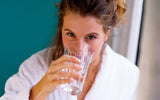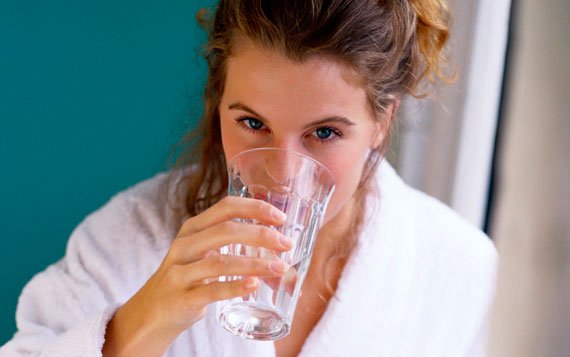
Water In The Winter
, by Dr. Jeff Pearl, MD, 2 min reading time

, by Dr. Jeff Pearl, MD, 2 min reading time

Recently, I found myself feeling dehydrated yet I was not feeling particularly thirsty. I am still drinking water and it is winter so I should not need as much, right? Well actually, that is not correct. Despite the cooler temperatures, the air remains very dry. Forced furnace air for heating dries out the environment further. We still exercise and we still digest our food-both of which require fluids. Being outdoors in the wind can also deplete our own fluids. So just because it is cooler does not mean we need less fluid. However, for some reason we tend to not feel as thirsty when it is cooler than in the summer. It has been suggested that the act of sweating itself, and/or the bodies sense of external heat both can stimulate the thirst response. These can be lacking or decreased in winter. That is when it's helpful to know how much water we should drink in a day.
We tend to get about 25% of our fluid requirement from foods, but the rest comes from liquid intake. A few suggestions to make sure you get adequate fluids include drinking one-half your body weight in pounds converting to ounces. So if you weight 160 lbs then you need 80 ounces of fluids a day. Assuming you are of average size, men should drink about 13 cups of water and women about 9 cups of water per day. Adding some cucumber, lemon or mint to your water may make it more likely for you to drink even when you do not feel thirsty. Coffee and soda counts as a fluid but the caffeine acts as a diuretic so you lose some of the fluid benefit from these liquids.
Staying well-hydrated is important to help your immune system, decrease muscle fatigue, and flush out toxins that accumulate each day. Furthermore, some mistake the feeling of thirst as hunger instead and eat rather than drink. Staying hydrated may help decrease your cravings and help with weight control. In fact, it has been shown that drinking a glass of water increases your metabolism for a period of time afterward and is part of many diet regiments. Pay attention to how often you urinate and perhaps to the color of your urine (although if you take vitamins it can still be yellow even when well-hydrated). A good starting point is to drink a full glass (8-12 ounces) of water in the morning when you wake up and another just before bedtime. Add one more during the day and you are already up to almost ½ of your daily need. Pay attention to the type of fluid you are drinking and make sure you do not overdo the sugar or artificial sweeteners.


![PRōZE Review [2020 Update]](http://hihealth.com/cdn/shop/articles/cbd_insider_article_graphic_featured_image-11.jpg?v=1591495027)